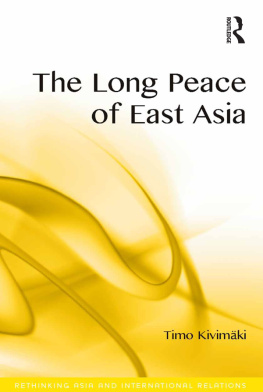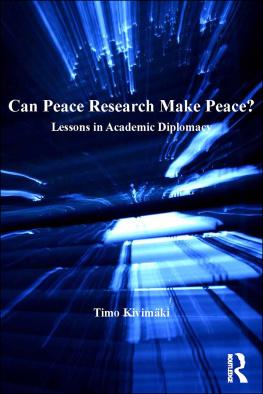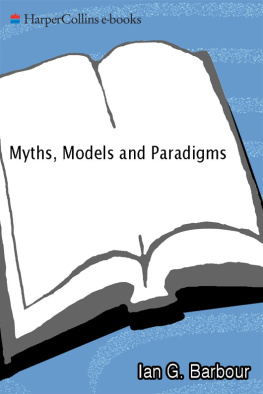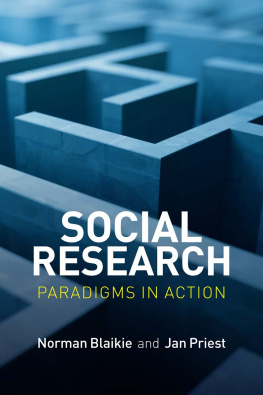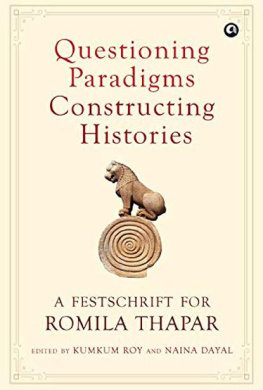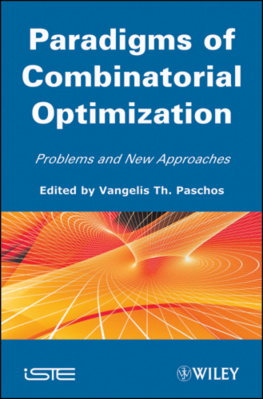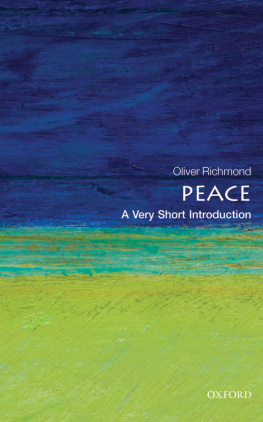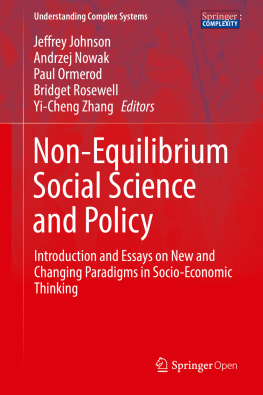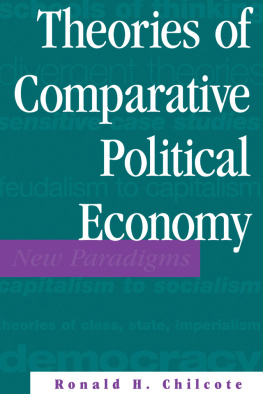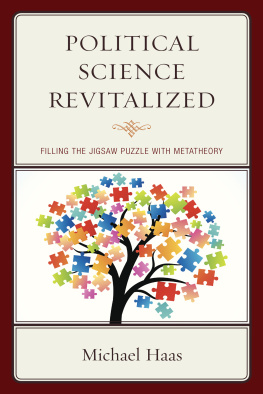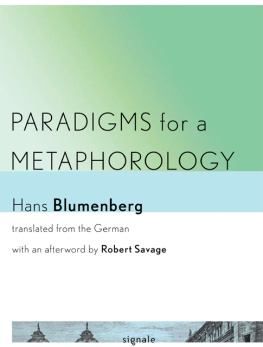


Published by
Imperial College Press
57 Shelton Street
Covent Garden
London WC2H 9HE
Distributed by
World Scientific Publishing Co. Pte. Ltd.
5 Toh Tuck Link, Singapore 596224
USA office: 27 Warren Street, Suite 401-402, Hackensack, NJ 07601
UK office: 57 Shelton Street, Covent Garden, London WC2H 9HE
Library of Congress Cataloging-in-Publication Data
Names: Kivimki, Timo, author.
Title: Paradigms of peace : a pragmatist introduction to the contribution to
peace of paradigms of social science / Timo Kivimki.
Description: New Jersey : Imperial College Press, [2016] |
Includes bibliographical references.
Identifiers: LCCN 2015047344 | ISBN 9781783269433 (hc : alk. paper)
Subjects: LCSH: Peace. | Peace-building. | Constructivism (Philosophy)
Classification: LCC JZ5538 .K59 2016 | DDC 303.6/6--dc23
LC record available at http://lccn.loc.gov/2015047344
British Library Cataloguing-in-Publication Data
A catalogue record for this book is available from the British Library.
Copyright 2016 by Imperial College Press
All rights reserved. This book, or parts thereof, may not be reproduced in any form or by any means, electronic or mechanical, including photocopying, recording or any information storage and retrieval system now known or to be invented, without written permission from the Publisher .
For photocopying of material in this volume, please pay a copying fee through the Copyright Clearance Center, Inc., 222 Rosewood Drive, Danvers, MA 01923, USA. In this case permission to photocopy is not required from the publisher.
Desk Editors: Suraj Kumar/Mary Simpson
Typeset by Stallion Press
Email:
Printed in Singapore
Preface
This book is partly motivated by the realization that peace research has failed to follow and utilize the progress made in social sciences. The mainstream of peace research is still very traditional and the main journals in peace research are still bastions of positivism. Most of the post-positivist, new and innovative ideas in the study of peace and conflicts come from security studies. Yet, security studies approaches peace and conflict from a normatively repulsive, partisan perspective. It is interested in someones security rather than being focused on peaceful relationships. Security can be achieved by destroying enemies, while for peace, destruction is never the answer. This is why peace research is still important, but it needs to embrace the progress in social science, including in security studies. This book is a study that seeks a way how peace research could utilize the discoveries in social sciences. It develops an agenda for pragmatic peace research peace research that can be an instrument of peace and that also creates interpretations that constitute peaceful social realities. Consequently, this study walks the reader through the main discoveries in social sciences picking up lessons for peace research. This makes it useful for advanced students of peace research and the related disciplines.
I have written this book also to correct the common misunderstanding according to which only traditionalist approaches to peace and conflicts can be used in practice. At the same time, we often think that more contemporary approaches are innovative and philosophically more advanced, but that we cannot really use them in practice for anything else but critique. This, many think, is because the everyday understanding of peace and conflicts is still too far from these philosophically more advanced approaches to social sciences. My disagreements with these views made me write this book. I think, for example, that discoveries of securitization, structural violence, positive peace and the denaturalization of racist, militarist or partisan language and practices have made a huge change in the way we construct the social realities of peace and war. They have been crucial for a more peaceful future. In the formulation of an agenda for peace research, I have approached traditionalist as well as more contemporary discoveries in social sciences from a pragmatist point of view. I have tried to see how different progressive steps can be utilized for peace research and how they can be useful in the construction of more peaceful social realities. This way I have tried to also link the more contemporary ways of thinking of societies to pragmatic value for peace.
I started writing this book after leaving the intellectually inspiring, but politically and institutionally oppressive environment of the University of Copenhagen and after returning to the University of Helsinki. I continue to be inspired by the innovative critical work of the Copenhagen School Ole Wver, Lene Hansen, and Anna Leader but this book was even more affected by the Critical Realist environment of the University of Helsinki. In addition to the above-mentioned pioneers of the Copenhagen School, I owe a great debt to Heikki Patomki, Riikka Kuusisto and Teivo Teivainen. My discussions with Heikki Patomki on theory, research, and world politics made my short stay at the University of Helsinki worthwhile, and gave me the inspiration to write this book. Furthermore, I owe a great debt to my new intellectual home, the University of Bath, whose open and inspiring environment made it possible for me to finish writing this book. For encouragement, advice and comments related to some of the final difficulties in this book, I am grateful for Anna Bull, Bill Durodie, Brett Edwards, David Galbreath, Leslie Wehner and Bryan Wong. Finally, I am grateful for the opportunity to develop some of the ideas that I write about in this book in the Conflict Research Society. I am especially grateful for the comments, encouragement and advice from Gordon Burt, Judith Large, Hugh Miall and Chris Mitchell.
About the Author
Dr. Kivimki is Professor of International Relations with particular expertise in peace and conflict studies at the University of Bath. Previously, he has held professorships at the University of Helsinki, University of Lapland, and at the University of Copenhagen. Professor Kivimki has also been Director of the Nordic Institute of Asian Studies (Copenhagen) and the Institute of Development Studies of the University of Helsinki.
In addition to purely academic work, Professor Kivimki has been a frequent consultant to the Finnish, Danish, Dutch, Russian, Malaysian, Indonesian, and Swedish governments, as well as to several UN and EU organizations on conflict and terrorism. He was the co-initiator of the West Kalimantan peace process, led by Indonesias Vice President, Jusuf Kalla and advisor to President Martti Ahtisaari, who was the mediator in the Aceh Peace Talks.
Professor Kivimkis latest book, The Long Peace of East Asia (Farnham: Ashgate, 2014) offers a constructivist explanation to the relative peace of East Asia since 1979. Kivimkis book, Can Peace Research Make Peace . Lessons in Academic Diplomacy (Farnham: Ashgate, 2012), was nominated for the prestigious Best Book Prize by the Conflict Research Society in year 2014. Kivimkis recent articles on peace and conflict topics were published in the Chinese Journal of International Relations, Pacific Focus, the Pacific Review, International Relations of the Asia Pacific, Journal of Peace Research, Asian Security, and the Middle East Policy.


